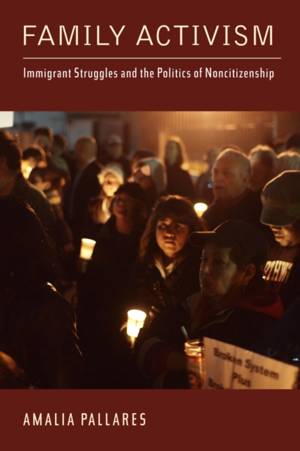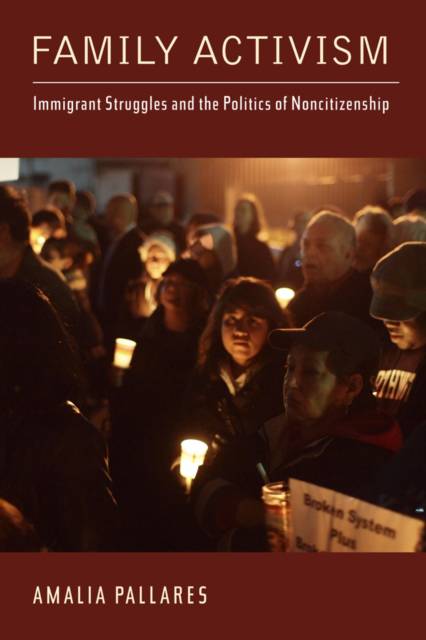
- Afhalen na 1 uur in een winkel met voorraad
- Gratis thuislevering in België vanaf € 30
- Ruim aanbod met 7 miljoen producten
- Afhalen na 1 uur in een winkel met voorraad
- Gratis thuislevering in België vanaf € 30
- Ruim aanbod met 7 miljoen producten
Zoeken
€ 254,45
+ 508 punten
Uitvoering
Omschrijving
During the past ten years, legal and political changes in the United States have dramatically altered the legalization process for millions of undocumented immigrants and their families. Faced with fewer legalization options, immigrants without legal status and their supporters have organized around the concept of the family as a political subject--a political subject with its rights violated by immigration laws.
Drawing upon the idea of the "impossible activism" of undocumented immigrants, Amalia Pallares argues that those without legal status defy this "impossible" context by relying on the politicization of the family to challenge justice within contemporary immigration law. The culmination of a seven-year-long ethnography of undocumented immigrants and their families in Chicago, as well as national immigrant politics, Family Activism examines the three ways in which the family has become politically significant: as a political subject, as a frame for immigrant rights activism, and as a symbol of racial subordination and resistance.
By analyzing grassroots campaigns, churches and interfaith coalitions, immigrant rights movements, and immigration legislation, Pallares challenges the traditional familial idea, ultimately reframing the family as a site of political struggle and as a basis for mobilization in immigrant communities.
Drawing upon the idea of the "impossible activism" of undocumented immigrants, Amalia Pallares argues that those without legal status defy this "impossible" context by relying on the politicization of the family to challenge justice within contemporary immigration law. The culmination of a seven-year-long ethnography of undocumented immigrants and their families in Chicago, as well as national immigrant politics, Family Activism examines the three ways in which the family has become politically significant: as a political subject, as a frame for immigrant rights activism, and as a symbol of racial subordination and resistance.
By analyzing grassroots campaigns, churches and interfaith coalitions, immigrant rights movements, and immigration legislation, Pallares challenges the traditional familial idea, ultimately reframing the family as a site of political struggle and as a basis for mobilization in immigrant communities.
Specificaties
Betrokkenen
- Auteur(s):
- Uitgeverij:
Inhoud
- Aantal bladzijden:
- 200
- Taal:
- Engels
- Reeks:
Eigenschappen
- Productcode (EAN):
- 9780813564579
- Verschijningsdatum:
- 30/11/2014
- Uitvoering:
- Hardcover
- Formaat:
- Genaaid
- Afmetingen:
- 152 mm x 229 mm
- Gewicht:
- 435 g

Alleen bij Standaard Boekhandel
+ 508 punten op je klantenkaart van Standaard Boekhandel
Beoordelingen
We publiceren alleen reviews die voldoen aan de voorwaarden voor reviews. Bekijk onze voorwaarden voor reviews.











